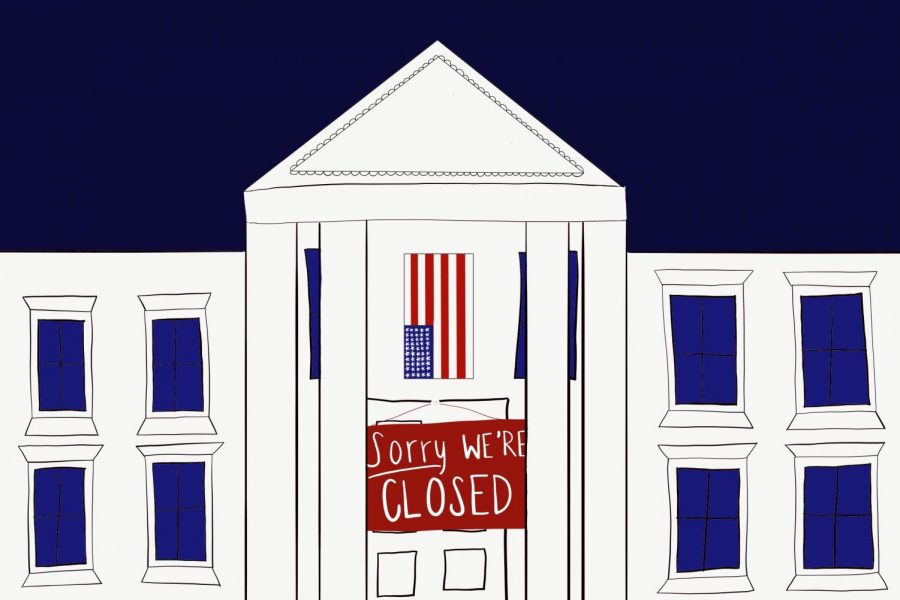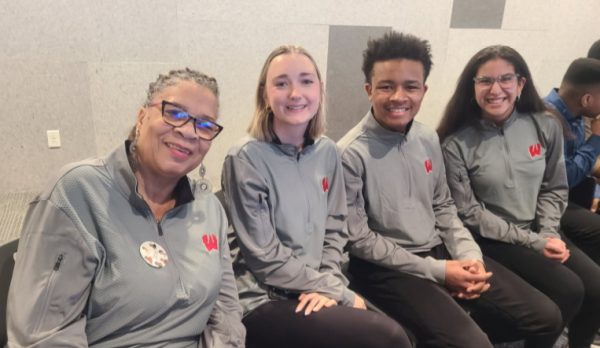Westside Individuals Reflect on Government Shutdown
The most recent government shutdown, lasting from Dec. 22, 2018, to Jan. 25, 2019, was the longest in U.S. history, totaling 35 days. It is the second government shutdown occurring during the Trump presidency, and it has affected millions of Americans. According to Consumer News and Business Channel (CNBC), federal employees were required to work without receiving a paycheck while the government was shutdown. This set many individuals and families behind financially. President Trump imposed the government shutdown after not receiving his preferred $5.7 billion to construct a wall at the U.S. and Mexico border. If lawmakers do not present a solution regarding immigration that appeals to Trump, he is threatening to shutdown the government once again on Feb. 15.
Social Studies teacher Nathan Bramley said he feels as though the government shutdown was a frustrating situation.
“People who have signed up to serve their country and are really proud of it, now are not getting paychecks and that really puts them in an impossible situation,” Bramley said. “They’re patriots so they want to do their job, but we have to ask ourselves if we weren’t getting paid, would we show up?”
Bramley said he believes the potential border wall is not an appropriate reason to shutdown the government
“There’s very little justifiable reasons to [shutdown the government],” Bramley said. “There’s just so many issues [the U.S.] has going on and with immigration, there’s people on both sides of this issue, while I can empathize with some of the concerns, I don’t think a literal wall is the way to fix any of the problems.”
Bramley said he sees a potential underlying reason for the shutdown.
“I feel like this is more of a cultural battle we’re waging in our country, and this wall is almost like a figurative thing, but it’s an actual real thing that’s worth lots of money,” Bramley said.
Senior Katie Duggan said she believes the shutdown was prompted by unrealistic reasons, and has had an overall negative impact.
“I think [the shutdown] is super unreasonable and it [went on] way too long,” Duggan said. “First of all, it only happened because no one would give funding to the border wall, but we don’t just shutdown the government because no one’s [willing] to agree with the president. That’s just not the way democracy is supposed to work.”
Another effect of the shutdown was the halt of inspections by the FDA. This caused a panic nationwide because people feared that their food would be unsafe to eat. Around the time of the shutdown, the CDC alerted the media and advised consumers as well as restaurants not to eat, serve or sell romaine lettuce due to an investigation regarding an E. coli outbreak within the lettuce. Westside’s nutrition services director, Erin Vik, discussed how the shutdown impacted the district’s food arrangements and how it was dealt with.
“From the nutrition services department, we are in kind of a precarious position with [the shutdown],” Vik said. “We deal with programs that are funded by the USDA but managed by the Department of Education. Now, the Department of Education is funded ahead, but the USDA is funded in real time.”
Due to the district having funds set in place, Vik said the nutrition services department was able to successfully get through the shutdown.
“We as a district, in our department, have reserve funds, so we would be able to take care of anything that we needed taken care of for the students of Westside Community Schools through that process and time frame,” Vik said.
Vik said other districts around the country were more impacted by the shutdown compared to Westside.
“There were a lot of districts around the country that were changing their menu, changing what they offered and what they would be able to serve because they had to be a little bit more cost effective because they didn’t know what their funding was going to be,” Vik said. “Things were a little more day to day in that sense.”
The shutdown caused a lot of uncertainty within nutrition services across the nation and Vik said this included Westside.
“There was just a lot of the fear of the unknown. We didn’t know how our systems were going to work, how deliveries were going to happen, that type of thing,” Vik said.
Vik said he feels as though Westside had all the resources necessary to stay afloat during the shutdown. However, another shutdown occurring would become a potential problem.
“[The FDA halting food inspections] could have potentially been a long term problem, but for the majority of the products we deal with, in real time, we were good,” Vik said. “If [the shutdown] would have extended much further, into the end of February and March, it would’ve been a little bit more concerning.”
President Trump and the GOP have recently agreed to fund the government for three weeks, not putting those funds towards the potential wall project. As of right now, Congress and other lawmakers are attempting to create an immigration plan that satisfies Trump.
Your donation will support the student journalists of Omaha Westside High School. Your contribution will allow us to purchase equipment and cover our annual website hosting costs.

Hi my name is Claire Benson! I am the Co-Editor-in-Chief for Westside Wired this year. I am currently a senior and this is my third year on Wired. If you...












